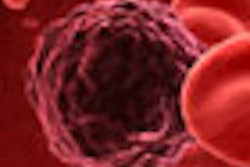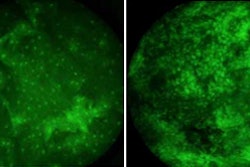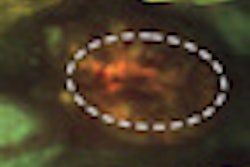The National Institutes of Health (NIH) has awarded researchers in Rice University's new BioScience Research Collaborative (BRC) a $2 million Grand Opportunity (GO) grant to develop a fast, inexpensive test for oral cancer that a dentist could perform simply by using a brush to collect a small sample of cells from a patient's mouth.
"We want to provide an accurate diagnosis for oral cancer in less than 30 minutes using a minimally invasive test that requires no scalpels or offsite lab tests," said principal investigator John McDevitt, Ph.D., Rice's Brown-Wiess Professor in Bioengineering and Chemistry, in a press release. "The payoff for this could be tremendous because oral cancers today are typically diagnosed much too late in their development."
NIH established the GO grant program to support projects that address large, specific research endeavors that are likely to deliver near-term growth and investment in biomedical research and development, public health, and healthcare delivery. GO grant funding was provided by the American Recovery and Reinvestment Act.
Oral squamous cell carcinoma affects about 300,000 people per year worldwide, and most cases are diagnosed in their late stages, according to the university. If detected early, the prognosis for patients is excellent, with a five-year survival rate of more than 90%.
The new "lab-on-a-chip" test being developed at Rice is possible because of a novel microchip invented in McDevitt's lab, according to the university. It uses the latest techniques in microchip design, nanotechnology, microfluidics, image analysis, pattern recognition, and biotechnology to shrink many of the main functions of a state-of-the-art clinical pathology laboratory onto a microchip the size of a postage stamp.
The microchips are mounted on disposable, plastic cards that are slotted into a battery-powered analyzer. A brush-biopsy sample is placed on the card and microfluidic circuits wash cells from the sample into a reaction chamber. The cells pass through minifluidic channels about the size of small veins and come in contact with biomarkers that react only with specific types of diseased cells. The machine uses two light-emitting diodes to light up various regions of the cells and cell compartments. Healthy and diseased cells can be distinguished from one another by the way they glow in response to the LEDs.
The oral cancer test will be developed in collaboration with scientists at the University of Texas M. D. Anderson Cancer Center, the University of Texas Health Science Center at Houston, the University of Texas Health Science Center at San Antonio, and the University of Sheffield in the U.K. In addition to cancer, McDevitt's lab is developing tests for heart attacks and HIV, plus a process to produce the disposable cards for pennies apiece.
The analyzers used in the test are made by LabNow, a start-up McDevitt launched while at the University of Texas at Austin.
Copyright © 2009 DrBicuspid.com



















